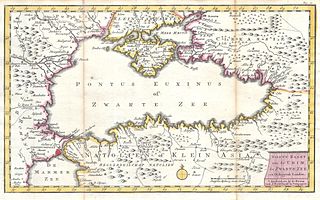Çandar: Threatened by Russia, Turkey clings to EU
Cengiz Çandar in Radikal writes that Turkey is seeking a closer relation with the EU because the historical rivalry between it and Russia has been revived, with Turkey being encircled on three fronts by a Russia that has annexed Crimea to the north, has strengthened its military ties with Armenia to the east and has become entrenched to the south by its support to the Kurds in the vicinity of Aleppo and has denied Turkey access to the north Syrian air space. In this context, Ankara (which does not mean exclusively the AKP government) views the PKK as an “asset” that Russia is using or will use against Turkey. The Turkey-EU “refugee bargaining” becomes intelligible by looking at this big picture. Turkey, which is “besieged” by Russia and feels to under “strategic threat” is reorienting in the direction that remains open for it, that is to the West, across the Aegean Sea. At the same time, Ankara is exploring a “common ground” with Iran in countering the Kurds, just like Turkey did back in 1937, when the Saadabad treaty was concluded with Persia. This “political maneuver” by Turkey is also an attempt to break the Russia-Iran entente over Syria.
Turkey’s Crimean Dilemmas and Passivity
By Stephen Blank (vol. 8, no. 4 of the Turkey Analyst)
Given the prominent role that Ankara aspires to have in regional and world affairs what does the Turkish passivity in relation to the developments in the Black Sea region, and specifically regarding the case of Crimea, say about those avowed aspirations? Turkey's inability and unwillingness to stand up to Russian neo-expansionism – something history should have taught Ankara to be extremely wary of – serves to further underline that Turkey's erstwhile reputation for conducting a strong independent foreign policy was never deserved.



